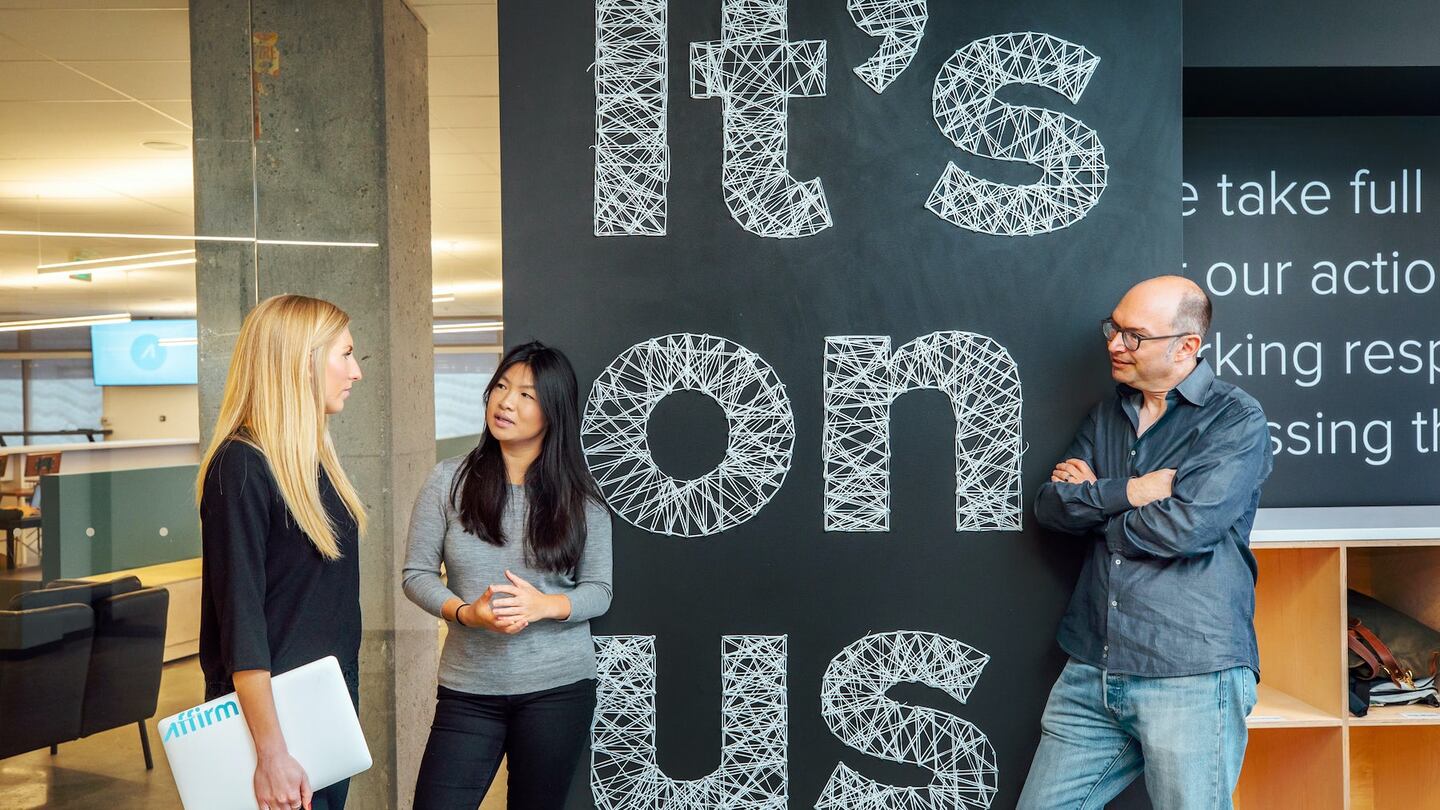
The Business of Fashion
Agenda-setting intelligence, analysis and advice for the global fashion community.

Agenda-setting intelligence, analysis and advice for the global fashion community.

SAN FRANCISCO, United States — As one of the original co-founders of PayPal and the founding chief technology officer, Max Levchin has an impressive entrepreneurial pedigree. Having launched his business with Peter Thiel, Levchin and Thiel merged with Elon Musk's company to found PayPal in 1998. After exiting PayPal, Max founded the content sharing platform Slide, which was acquired by Google in 2010.
Despite his prolific output to date, the entrepreneur founded his latest company, Affirm, with a mission that he expects will take the remainder of his working life to achieve. According to Levchin, by creating a new way to determine credit worthiness by using factors other than just the traditional FICO score, and offering variable payment terms, Affirm was designed as an, "honest financial product that improves people's lives." To achieve its mission, the company is calibrated around five fundamental values that inform both employee culture and customer service: simpler is better; people come first; no fine print; push the envelope; and, it's on us.
Recognising that employees are the fundamental drivers of company culture, Affirm seeks to foster connectivity and inclusivity through employee focus groups and employee-driven initiatives. The business also regularly polls its employees on their workplace satisfaction and connectivity. It releases a blind diversity/inclusion survey asking for feedback on how successfully the business is recruiting diverse talent, whether employees feel they belong, and how they feel the company can do more.

Max Levchin, founder and chief executive of Affirm | Source: courtesy
In addition to partnerships with travel, home and lifestyle companies, offering both in-store and online payment options, Affirm has also signed a number of fashion partnerships over the last 12 months, including Warby Parker, David Yurman and Cole Haan, among others.
BoF sits down with Max Levchin to hear about his plans for the fashion industry and why company culture is crucial to Affirm’s future success.
How did you approach forming your company culture?
One of the most important things in creating a company culture is that you just obsessively repeat — especially when growing your company rapidly. I think we’ll exit the year shy of 800 employees, which is unbelievable considering the company only turned seven years old in March. At Affirm, everyone goes through an onboarding process. I have lunch with every single person that joins the company. I had my most recent one yesterday, which was quite a big lunch of about 30 people admittedly, but I still make it a rule to come to every one of these things. My job there is to answer what typically ends up being the same three questions: how does this company work, what’s its real purpose, how do we think about its north star?
When forming the company, the very first thing I did was try to break down what the company is and isn’t, what it stands for and how we should behave in different circumstances. The culture was really a crucial thing for me to define in the early days, especially as at Paypal we got pretty lucky and we had a pretty good culture without trying. For Affirm, I wanted to build something that was really long lasting and had a clear notion of a true North. I wrote down five core values for the company and a mission statement that we have engaged with in everything we’ve done since.
How do you expect it to impact the business evolution?
By stating the culture explicitly and continuously, writing it down, putting it on the walls — we wanted people to come to the office and see in giant print, “people come first” or “no fine print.” We really have created a cultural shift in managers, project managers and designers, even those in their first job out of college, that we all want to fix something that is broken — access to responsible finance — and be proud of how we go about it.
What are your plans for the fashion industry specifically?
We’ve built a very cool, really differentiated solution that works for our partners that have both physical retail as well as online retail. One of the most interesting things that we are now figuring out is how to work with fashion customers who have a high velocity, so consumers who shop quite often, who make purchases, come back, reconsider, etc. — that’s where we can really play well with fashion merchants. We enter each of our partnerships trying to understand more together. We’ve created products specifically for the fashion merchant that seeks to truly understand their consumers and their purchasing habits.
How do you balance your mission with your commercial strategy?
We fundamentally ask one question, “Can this person safely afford the thing that they want?” And if the answer is yes, we will absolutely enable it. It’s not our job to judge what they’re buying but it is absolutely our job to be highly prescriptive in whether they should or should not be buying or spending this amount of money.
The first thing I did was try to break down what the company is and isn't, what it stands for and how we should behave in different circumstances.
Reading the public filing of most banks, you realise that for many of them, half the profits come from late fees. So, when we were thinking through how to tackle this, we said, part of our operating principle is that people come first. Practically, that means we should not make money when our customer makes a mistake or has such a misfortune in their life that they are unable to make a payment on time. We would much rather work with them. One of the ways that we can judge a company on that front is the net promoter score, which is based on their satisfaction score. Ours is 83, which is about 30 points higher than most banks that make credit cards.
What excites you most about Affirm’s future?
One of the most important reasons why I am so excited about the fashion vertical is because it’s the first vertical that I believe is really going to break personalisation. I think it’s happening in retail in general, a little bit as a result of Amazon, but there’s a sense that everything is tailored to you in fashion and luxury. Affirm can really take personalisation to an extremely interesting level, using our insights to understand the consumer in a way that empowers them, rather than capitalises on them. I believe there is huge potential to apply that to the fashion industry in innovative ways and we are genuinely excited to do that.
This is a sponsored feature paid for by Affirm as part of a BoF Careers partnership. To explore careers at Affirm, please click here.
To provide actionable insights and inspiration on how fashion and retail industries can further embed diversity, equity and inclusion in the workplace and business strategies today, BoF Careers co-hosted a panel discussion with The Outsiders Perspective. Now, BoF shares key learnings from the panel.
Discover the most exciting career opportunities now available on BoF Careers — including jobs from Tapestry, Alexander McQueen and Toteme.
A US regulator has banned most uses of the clauses, which started as a way for fashion companies to prevent senior executives from walking off with trade secrets, but have become a standard retention tool.
Check out this week’s new partners and openings on BoF Careers, the global marketplace for fashion talent.